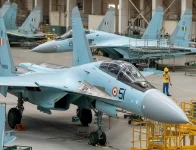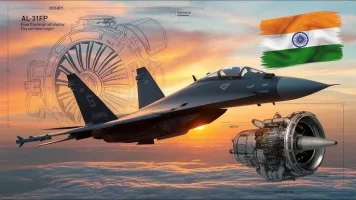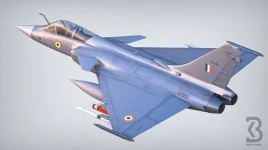
India's aspirations of becoming a global powerhouse in the maintenance, repair, and overhaul (MRO) sector for military aircraft have received a significant boost recently.
Global aerospace giants like Dassault Aviation, Lockheed Martin, and Boeing have either announced or hinted at substantial plans for India, bolstering the country's ambition to double its MRO industry to a staggering $4 billion by 2030.
This surge of interest from international players comes in the wake of India's recent implementation of a uniform 5% Integrated Goods and Services Tax (IGST) rate on all aircraft and aircraft engine components.
This policy change, effective from July 15th, addresses the previous challenges posed by varying GST rates, streamlining the tax structure, and fostering a more conducive environment for growth within the MRO sector.
Dassault Aviation's recent announcement of establishing a new MRO facility in Noida, Uttar Pradesh, is a testament to this positive momentum. This facility, aimed at supporting the French-origin combat aircraft utilized by the Indian Air Force, aligns with India's self-reliance initiative and is expected to create a ripple effect, gradually expanding MRO capabilities in collaboration with the domestic aerospace industry.
Similarly, Lockheed Martin and India's Tata Advanced Systems Ltd's teaming agreement to establish an MRO facility for the C-130J Super Hercules military transport aircraft underscores the growing confidence in India's MRO potential. This facility is envisioned to not only cater to the IAF's fleet but also serve the global fleet of these aircraft.
Boeing's partnership with India's AI Engineering Services Limited (AIESL) to enhance local MRO capabilities for the Indian Navy's P-8I maritime surveillance aircraft further amplifies this trend. The recent successful in-country overhaul of a P-8I aircraft landing gear at INS Rajali symbolizes the increasing indigenization of complex MRO services within India.
These successive announcements from global aerospace majors highlight the transformative impact of the uniform IGST policy. By eliminating the complexities of the previous tax structure, India has sent a clear message to the world: it is open for business and ready to become a global MRO hub.
The government's proactive stance, coupled with the eagerness of international players to invest in India's MRO sector, paints a promising picture for the future. India's dream of becoming a global MRO powerhouse is no longer a distant aspiration, but a rapidly unfolding reality.
With the right policies and collaborative efforts, India is poised to emerge as a key player in the global aerospace industry, contributing significantly to its economic growth and technological advancement.



